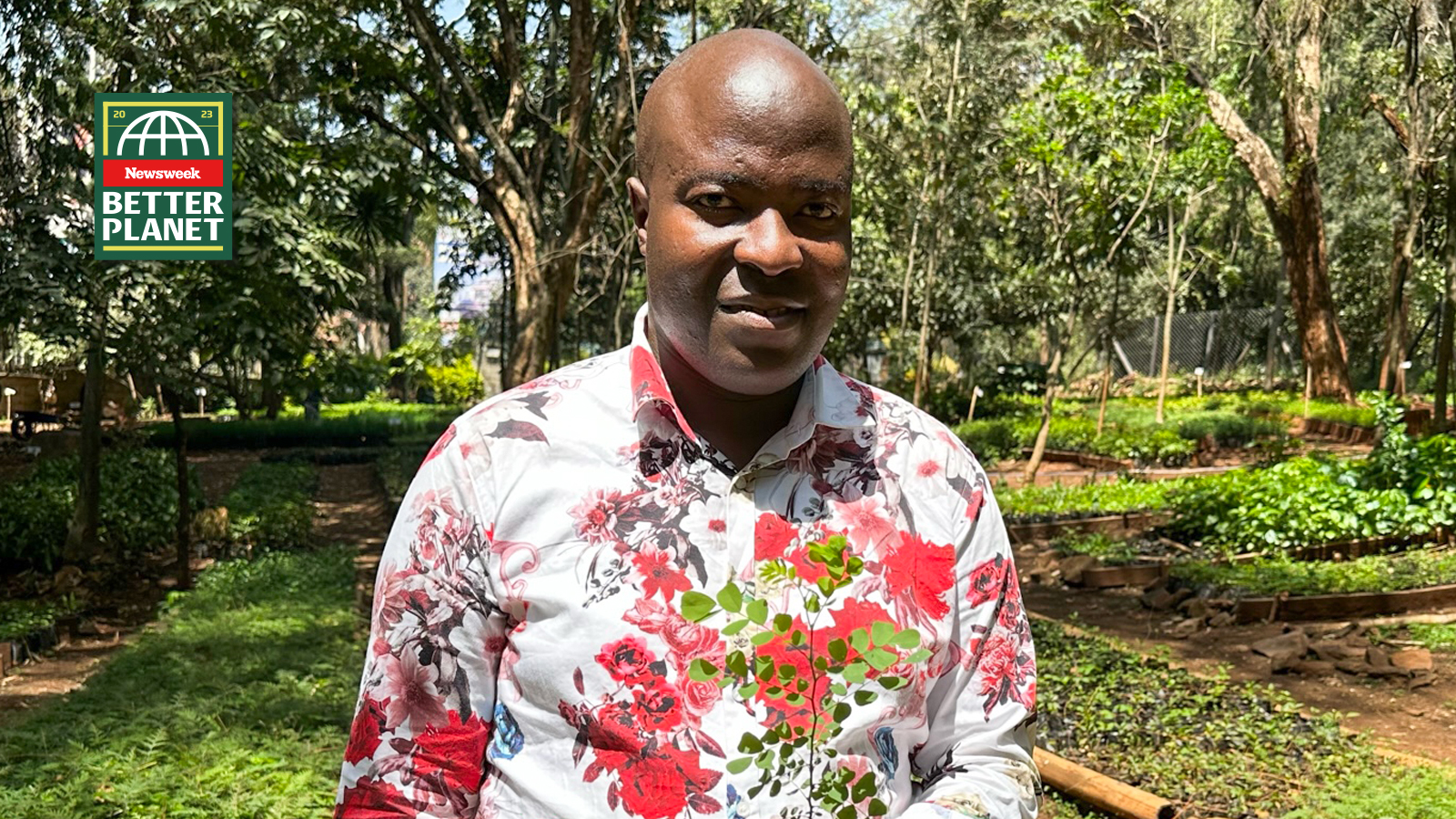When John Ouko walks the green, leafy paths of the Nairobi Arboretum, he sees thousands of tiny signs of hope for a tree that had been cut to the point that Kenyans feared they might lose it—the Mpingo tree.
“It appeared it was going extinct” in parts of Kenya, Ouko told Newsweek over a recent Zoom call. Ouko, who is 36, has been with the Kenya Forest Service for a decade, the past three years with the arboretum.
Over-harvesting has depleted the Mpingo in many parts of its native range, and the International Union for the Conservation of Nature has categorized the species as near-threatened. The arboretum Ouko directs is working to turn that around by growing row upon row of Mpingo seedlings.
“As we speak, we have about 17,000,” he said.
The arboretum will tend to the seedlings for about eight months before sending them out to surrounding villages for replanting. The Mpingo seedlings are part of a larger project to increase Kenya’s depleted forests, protecting soil and water resources and drawing down CO2 from the atmosphere.
Kenya has expanded forest cover since launching a reforestation initiative in 2019, and the government set an ambitious new goal last year to increase the country’s forest cover from a little more than 10 percent today to 30 percent by 2050. Ouko said the Mpingo, which is also known as African blackwood or the Grenadilla, has an important role to play.
“The Mpingo tree is an indigenous tree which needs to be protected for heritage,” he said, adding that it is also particularly well adapted to harsh growing conditions. “This is a tree which normally grows more than any other tree in dry land.”
The Mpingo has another characteristic that connects it to people around the world, though many of them might not know it. The tree’s dark, dense heartwood is the preferred material for making many musical instruments, including clarinets, oboes, piccolos, piano keys and parts of violins. That earns the Mpingo yet another moniker: the Music Tree.
Ouko said musicians are now coming to the aid of the tree as well.
“They will come and entertain students,” he said, “to show them that even the instruments they use are made of this wood.”
Ian Tyson is a professional clarinetist in New York and one of the musicians who has gotten involved in the work to preserve and restore the tree. He is the executive director of a nonprofit group called the Daraja Music Initiative. “Daraja” is a Swahili word for bridge, Tyson explained.
“We are bridging conservation and music education, tying music to the Mpingo trees,” he told Newsweek.
The Daraja Music Initiative works mostly in Tanzania, where it provides music classes in some local schools and takes students on field trips to see the trees and help to plant them.
“The Mpingo is the national tree of Tanzania, so most of our students, they know of this tree,” Tyson said. “But they don’t always know the amazing qualities of the tree and that it goes to make these instruments played all over the world.”
Tyson said that until recently few woodwind players seemed to know where the wood used to make their instruments came from. But like many consumers, he said, musicians are showing increased interest in how and where their goods are produced, as well as whether workers are fairly treated and materials are sustainably sourced.
Music also allows the volunteers in his group to connect with young people in Tanzania, despite the language and cultural barriers.
“Music is just universal. Their eyes light up when we learn a new tune and we were able just to communicate a little bit more,” Tyson said. “There is this kind of spiritual aspect of it, because I think music is such a key component to all of our lives.”
In Nairobi, Ouko gets to see the many ways that trees enhance people’s lives. The Nairobi Arboretum dates to 1907 and Ouko said it is now home to about 350 species that form a popular refuge for people to escape the city’s noise.
“People from Nairobi come and enjoy seeing the trees, they enjoy the silence here,” he said.
He grew up in the small city of Homa Bay, near the shores of Lake Victoria in western Kenya, where he said his father inspired him to go into forestry. Now he encourages his children to plant, conserve and look after trees.
“If it is a matter of planting trees, let everyone get involved and they should preach this gospel everywhere,” Ouko said.

